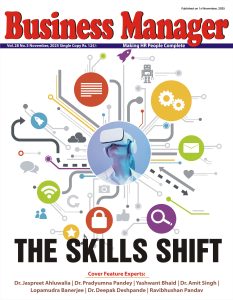The world of work is undergoing a seismic transformation, and India stands right at the center of it. With one of the youngest workforces in the world, the country’s demographic advantage can become a defining strength-or a missed opportunity-depending on how well we respond to the skills shift reshaping the future of employment.
Technology is rewriting the very fabric of work. Artificial intelligence, automation, data analytics, and digital platforms are transforming job structures more rapidly than our education and training systems can keep pace. The result is a widening mismatch between what organisations need and what the workforce currently offers. This skills gap is no longer an HR issue-it is an economic imperative that will determine the competitiveness of Indian industries in the global market.
For HR professionals, this moment calls for bold reimagination. Traditional hiring models, static job descriptions, and one-time training interventions can no longer sustain organisational growth. The new order demands skills intelligence-a clear mapping of current capabilities, future demands, and learning pathways that keep talent relevant and productive. HR leaders must evolve into architects of learning ecosystems, designing agile, personalised, and technology-driven up-skilling strategies.
But the shift is not just about digital skills. The future belongs equally to human skills-adaptability, empathy, collaboration, and problem-solving. As automation takes over repetitive tasks, the ability to think creatively, manage change, and lead with emotional intelligence will define real value.
Despite Govt. Initiatives for large-scale skilling, industry participation remains crucial. It is time for organisations to make re-skilling an integral part of their business strategy, and not just a reactive response to disruption.
The HR community must lead this charge-aligning workforce development with business transformation, fostering a culture of continuous learning, and ensuring that India’s demographic dividend does not fade into a demographic dilemma.
The skills shift is here-and it is relentless. It is happening quietly. The question for every Indian HR leader is not whether we can afford to invest in new skills, but whether we can afford not to.
In this issue, our cover story explores the what, why, and how of the skills shift through the lenses of seasoned industry and HR leaders-bringing together a holistic, thought-provoking narrative on the changing talent landscape.
If you like it let us know. If not, well, let us know that too.








